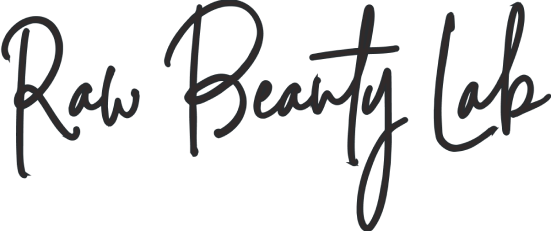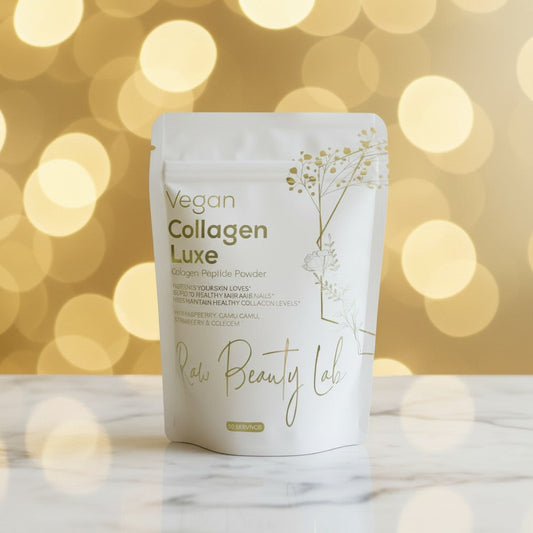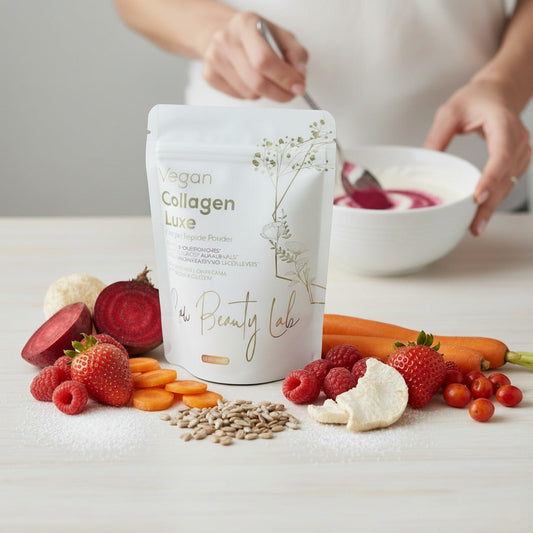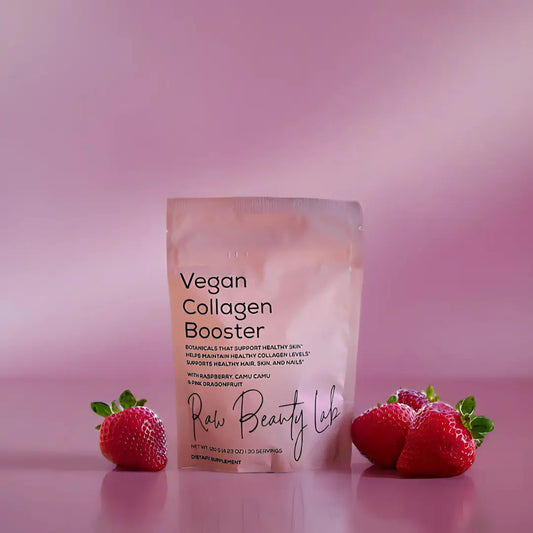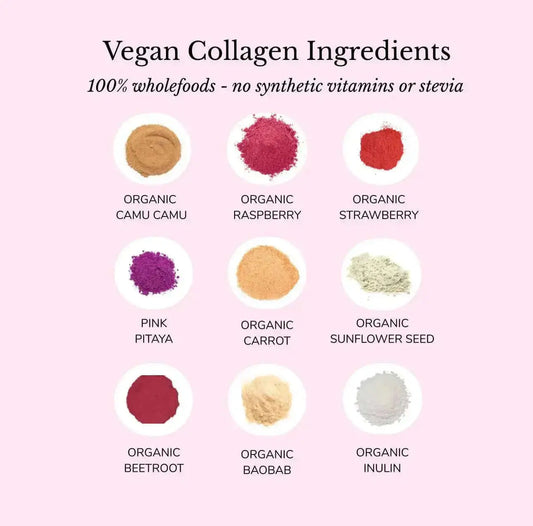Table of contents
Collagen has been taking the beauty industry by storm and if you haven’t already established that collagen is the secret to keep your skin youthful and glowing – now you know! Collagen makes up 80% of the protein in your skin and is responsible for keeping it plump, elastic and wrinkle free! Not to mention it’s importance in keeping your hair and nails strong, your gut chugging along and your joints healthy.
So, you’re all caught up on what does collagen do for you. The question remains however, what is collagen made off and how do you increase collagen in your body naturally?
What is collagen made off?
You frequently hear the terms bovine and marine collagen but what does your body need to successfully build collagen? Well collagen is made up of 3 amino acids – proline, glycine and any third amino acid (stay with me, I promise I’ll keep the science to a minimum!).
Glycine and proline come together in a series of reactions to produce the collagen protein. However, these reactions also require other nutrients, namely: zinc, copper and vitamin C. All of your collagen starts off initially as procollagen – a smaller molecule made up of 2 amino acids: proline and glycine. These amino acids come together with vitamin C to produce pro collagen.
A third amino acid (this can be any amino acid) is added to procollagen which is then converted to collagen through a series of biochemical reactions (don’t worry, I’ll spare you the details). This requires nutrients like zinc and copper to activate enzymes required for the reaction.

So where does bovine and marine collagen fit into all this?
Animal based collagen provides you with the amino acids needed to produce collagen, but they can’t directly replace the collagen in your skin. Your body still needs to make its own collagen by breaking down the collagen peptides into amino acids and then going through the process described above.
Additionally, while amino acids are important, they aren’t enough to produce collagen themselves. You still need nutrients like vitamin C, zinc and copper to effectively produce collagen which animal collagen supplements may lack.
Not to mention the highly processed powder full of synthetic vitamins, sugars and flavours (because no-on ever said raw fish skins taste so good!) wouldn’t really be doing your digestive system and overall health any favours. I won’t go into all the detail now, but I have a whole article on the pitfalls of using supplements filled with additives and how damaging they can be for your skin!

How do you increase collagen in your body naturally?
So, if animal products aren’t necessary to produce natural collagen, then what collagen products should you be taking to help you build collagen and improve your skin? Well, you’ll be happy to know that the amino acids, vitamin C, zinc and copper can all be found in abundance in plant-based foods. Here’s a quick run down of the different food types you need to nourish your body with to make sure you are getting all the nutrients to help it build collagen:
Proline: asparagus, mushroom, cabbage, chickpeas, alfalfa sprouts, tofu, tempeh and other soy products
Glycine: sunflower seeds, pumpkin seeds, soy products, spinach, peas, hazelnuts and walnuts and plant based protein powders like sunflower seed powder found in our vegan collagen
Vitamin C: strawberries, raspberries, red bell peppers, broccoli, brussels sprouts, dragon fruit and citrus fruits
Copper: cashews, sesame seeds, almonds, spinach, Swiss chard, shiitake mushrooms, spirulina, dark chocolate (hallelujah!), carrots, sunflower seeds
Zinc: beetroot, hemp seeds, pine nuts, almonds, beans, quinoa, lentils, chickpeas, baobab
The benefit of plant-based foods is that in addition to the essential nutrients you need for collagen production, you’re also getting a generous helping of anti-aging antioxidants that protect your skin from damaging UV exposure and pollution and help bring out your natural glow!
While including a varied balanced diet is important for the health of your skin and wellbeing, ensuring you eat at least 1 of each food group from the list above can be hard when you’re busy!
That’s why we’ve done the hard work for you and included all the nutrients from collagen foods that you’ll need to help your skin build collagen for effective long-term results into a delicious collagen drink. We've worked hard to make sure our ingredients are all organic, vegan and we’ve got no (and I mean nothing, nil, nada… you get the idea) additives at all.
